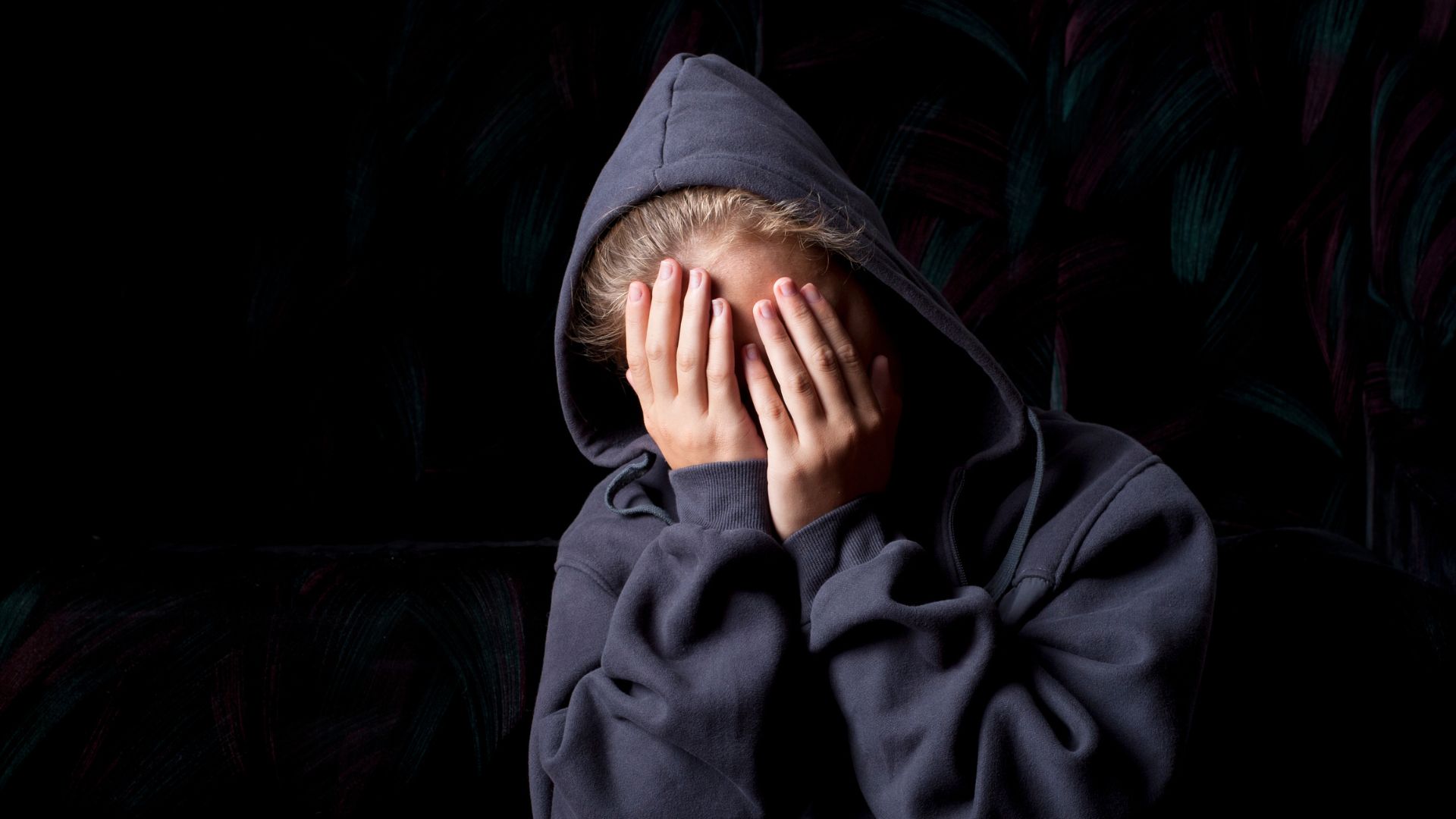The Five Most Common Mental Disorders in Teens
And How Therapy Can Help
Mental disorders in teens often arise from the social and emotional changes they experience while growing up. Traumatic events, such as a serious accident or illness, natural disaster, bullying, or loss of a loved one, can also increase the risk of developing a mental disorder. Nearly 50% of adolescents will experience a mental health disorder, according to the U.S. Department of Health and Human Services.
Untreated mental disorders can lead to serious issues and contribute to substance abuse, physical health problems, and increased suicide risk. Research shows that teens experiencing mental health disorders can benefit from therapy, including group therapy and cognitive behavioral therapy (CBT).
Let’s examine the five most common mental health disorders in teens and explore how therapy can help treat these disorders effectively.

The Most Common Mental Disorders in Teens:
- anxiety disorders
- depression
- attention-deficit/hyperactivity disorder (ADHD)
- bipolar disorder
- conduct disorder
Anxiety Disorders in Teens
According to the National Institute of Mental Health, anxiety disorders are the most common mental health disorders among adolescents. In the United States, an estimated 31% of adolescents aged 13 to 18 experience an anxiety disorder each year. Anxiety can be crippling for teens, impacting their ability to socialize, attend school, or even leave the house.
What are anxiety disorders?
Anxiety disorders involve excessive fear and distress that interfere with a person’s ability to function normally. A teenager experiencing an anxiety disorder may feel restless, on edge, or worried to the point that it impacts their schoolwork and personal relationships. Anxiety disorders can manifest in many ways, including certain phobias, separation issues, and episodes of panic.
Symptoms of teen anxiety:
- difficulty concentrating
- excessive worry or fear
- panic attacks
- physical symptoms – sweating, nausea, shaking
- trouble sleeping
Depression in Teens
Depression is the second most common mental health disorder among adolescents. In the United States, an estimated 13% of adolescents aged 12 to 17 experience a major depressive disorder each year, according to the National Institute of Mental Health. Without proper care, depression can escalate, leading to a downward spiral of worsening symptoms and strained relationships. In some cases, it can even invite thoughts of self-harm. That’s why it is critical to act quickly and seek help when a young person is struggling with depression. The right support can offer the tools and guidance needed to find a path out of the darkness into a brighter future.
What is teenage depression and what do the symptoms look like?
Teenage depression is a serious mental health issue that causes persistent feelings of worthlessness or sadness. Depression can cast a suffocating shadow on the lives of teenagers, stripping them of joy and motivation. When it sets its grip on an adolescent, maintaining relationships feels like an impossible task, and even activities they once cherished can lose their luster. Depression can sap a teen’s energy and leave them irritable or constantly drained.
Symptoms of depression in teens:
- feeling hopless
- feeling worthless or guilty
- low interest in usual activities
- low self-esteem
- sadness, crying for no apparent reason
- thoughts of death or suicide
ADHD (Attention-Deficit/Hyperactivity-Disorder)
ADHD, or attention-deficit/hyperactivity disorder, is a mental health condition that can cause people to have trouble paying attention, controlling impulsive behaviors, and staying organized. ADHD can affect people of all ages, but it is most often diagnosed in children and adolescents, according to the National Institute of Mental Health.
There is no single test to determine if a teen has ADHD. Healthcare providers trying to diagnose the condition may consult with parents, teachers, and other adults who interact with a child. This mental health condition can make it difficult for teens to remember daily tasks, maintain conversations with others, and get adequate amounts of sleep. However, with proper treatment, those with ADHD can learn to manage their symptoms and lead fulfilling lives.
Conduct Disorder in Teens
Conduct disorder is a mental health condition characterized by antisocial, aggressive, and disobedient behaviors. It affects many adolescents and is treatable with forms of talk therapy, according to the Cleveland Clinic. Teens experiencing conduct disorder often show a disregard for other people’s feelings. They may have difficulty following rules and behave in socially unacceptable ways. Some children struggling with conduct disorder exhibit hostile behavior, take aggressive actions, and engage in physical violence. With the right support, teens experiencing conduct disorder can learn to manage their emotions, control their behaviors and cultivate healthier patterns of social interaction.
Symptoms of Conduct Disorder in Teens:
- aggression toward people or animals (bullying)
- lack of empathy for others
- refusal to obey authority figures
- spiteful and vengeful behavior
- truancy (skipping school)
Bipolar Disorder in Teens
Bipolar disorder, sometimes called manic depression, is a common mental health disorder in teens. It causes unusual shifts in mood, energy, and activity levels, which can greatly affect a teen’s day-to-day functioning. Children with bipolar disorder may feel sad or hopeless, then suddenly shift moods and experience a sense of euphoria or joy, according to the Mayo Clinic. Many teens with bipolar disorder experience periods of intense irritability.
With proper treatment and support, adolescents with bipolar disorder can learn to manage their mood swings and other symptoms. Bipolar disorder, considered to be a lifelong condition, is often treated with medications and therapy.
Symptoms of Bipolar Disorder in Teens:
- manic feelings, such as
- short temper or extreme irritability
- inflated sense of ability, knowledge, and power
- intense happiness or silliness for long periods
- participation in risky or reckless things that show poor judgment
- depressive feelings, including:
- hopelessness and worthless
- frequent and unprovoked sadness
- physical pain, such as stomachaches and headaches
- sleeping more, low energy, and no interest in activities they usually enjoy

How to Treat Common Mental Health Disorders in Teens
Mental health disorders in teens can have serious, long-term consequences if left untreated. But with the right support and treatment, including group therapy, and behavior modification techniques, teens can learn to manage their symptoms and lead happier, healthier lives.
For anxiety, therapy can help teens identify triggers and develop coping mechanisms to manage symptoms. Cognitive behavioral therapy (CBT) has proven effective in treating anxiety disorders in teens.
Therapy can also help teens to identify the root causes of their depression, whether it be family or school-related stressors, and work to develop strategies for managing mood and improving coping mechanisms.
For teens experiencing ADHD, therapy can help identify the strategies that work best for them, such as setting schedules, using visual aids, or breaking tasks down into smaller steps. CBT can also be effective in helping teens with ADHD to manage impulsivity and improve social skills.
For all mental disorders in teens, group therapy can be helpful, as it allows teens to connect with others who may be experiencing similar struggles. If you or someone you love is struggling with a mental health issue, don’t hesitate to seek help. There is hope, and recovery is possible.

How You Can Help Your Teen with Mental Health Issues
If your teen is struggling with a mental health condition, don’t worry. You’re not alone. There are many avenues of help and support available. First, it’s important to educate yourself on your adolescent’s mental health. Talk to your local mental health specialist or research information from reputable sources online, like the National Institute of Mental Health (NIMH), mentalhealth.gov, or the Youth Mental Health Project. When you arm yourself with knowledge, you can better help your teen.
It’s also essential to be supportive. Take time to listen to your teen and be patient. Hear what they have to say and be sure to respond without judgment. Your support could make a difference. Most importantly, seek professional help for your teen if you both feel it would be beneficial. There are treatment programs available that focus on the unique needs of teens and adolescents experiencing mental health concerns, like Embrace U.
Located in Brentwood, TN, Embrace U is a mental health clinic in Brentwood, Tenn., specifically designed for young people aged 10-18. We provide group therapy, including intensive outpatient treatment programs and partial hospitalization programs. Embrace U gives participants and their families the support they need through individual, group, and family therapy. Our program will help adolescents develop coping skills, stronger self-esteem, and better ways to communicate. With the help of our experienced treatment team, you and your teen can overcome mental health struggles and grow stronger together!
Does your teen need help? Call Embrace U today!




